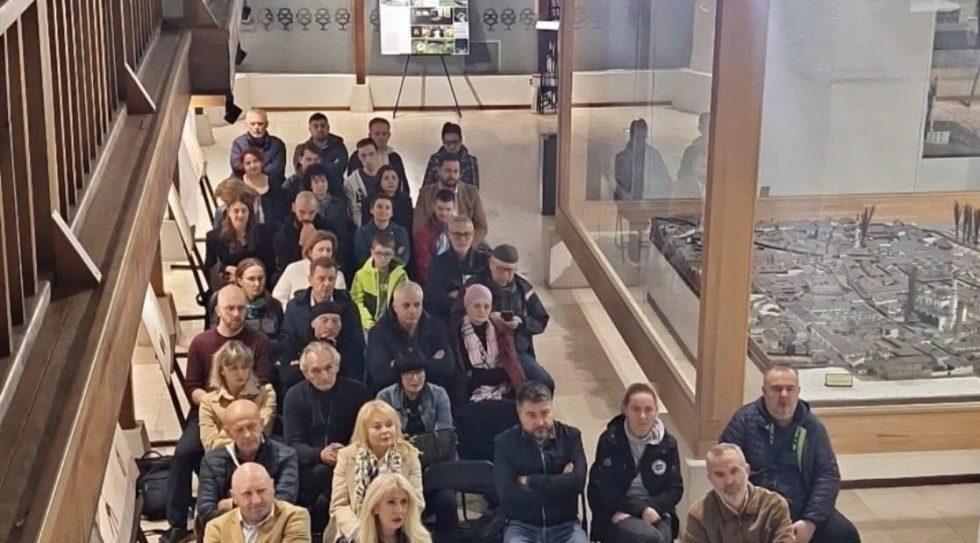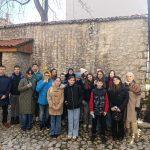Lecture on the topic “The Great Illyrian Revolt and Bato of the Daesitiates.”
Respected Prof. Dr. Salmedin Mesihović delivered an important lecture last night before a large audience on the topic “The Great Illyrian Revolt and Bato of the Daesitiates.” This chapter of Bosnian-Herzegovinian history has not been sufficiently highlighted today, nor has it been popularized in the context of media culture or within the sphere of art. It is particularly important to note that Bato of the Daesitiates originated from the wider Sarajevo region. He was a great military leader who continuously resisted the Roman legions for more than three years, from 6 to 9 CE. It was the longest-lasting uprising against Rome, one that decimated both the rebels and the Roman army, led to the destruction of the Illyrian population and numerous military formations on both sides, devastated the land and crops, after which Bato had to surrender in order to protect what remained of his people.
Professor Mesihović emphasized that Bato was a skilled strategist and leader, but that on the Roman side stood Tiberius, who mobilized the full strength of the trained Roman army from the east, north, and Italy. Although often defeated by the Daesitiates, Tiberius ultimately managed to, by breaking the rebels, regain key positions in Pannonia and Dalmatia and crush the resistance of the Daesitiates in the western and central parts of Bosnia — the main strongholds of the insurgents. It was during this time that ancient documents recorded, for the first time, the name of the Bosna River in two forms: Bathinus and Basan.
Linguistic experts have long concluded that the forms Bathinus and Basan are completely identical and both refer to the name of the Bosna River. In the Illyrian language, the dental aspirate “th” appearing in the form Bathinus has the value of the sound “s,” so Bathinus should be read as Basinus. This is, in fact, the Latinized form of the Illyrian name Basan, from which the Slavic settlers later derived the name Bosna (Bosnia). Through phonetic transformation, Bathinus (Basinus) and Basan first became Bosina, and then Bosna.
Thus, our land and our country derived their name from their central river.
The audience actively participated by asking several questions, making the lecture fully meet the expected format.
The next lecture, on the Cult of Mithras, will be held on November 20, 2025.




